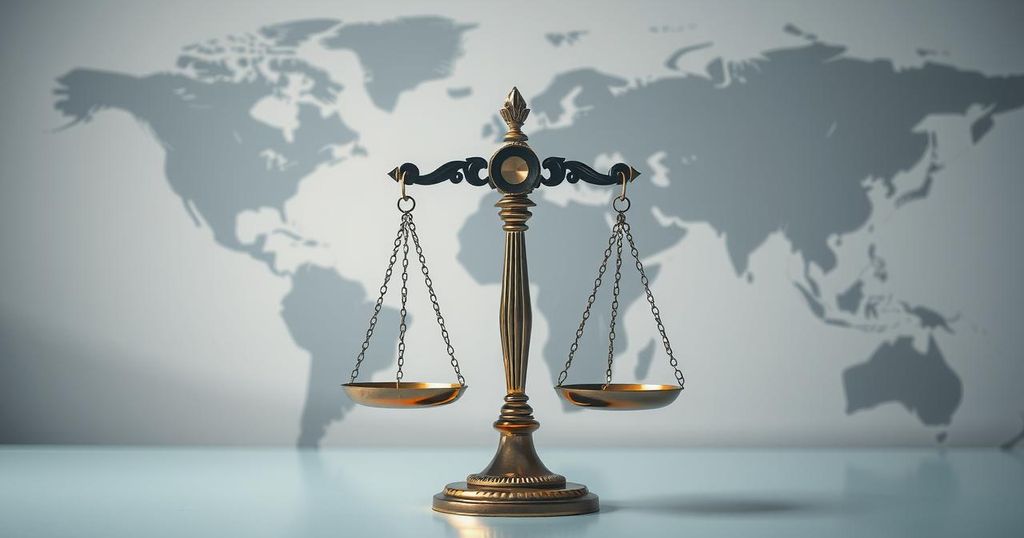The UN Human Rights Council has launched a commission of inquiry into human rights abuses in eastern DRC amidst ongoing conflict. This decision was made during a special session attended by various countries at Congo’s request. The commission aims to investigate violations, support accountability for criminals, and protect the rights of victims while addressing severe humanitarian concerns in the region.
The United Nations Human Rights Council has unanimously decided to initiate an urgent fact-finding mission and commission of inquiry regarding the ongoing atrocities occurring amidst the armed conflict in eastern Democratic Republic of Congo (DRC). This resolution emerged during a special session convened at the request of Congo, with the backing of 48 countries from various regions.
In recent conflicts, the Rwanda-supported M23 armed group has taken control of Goma from the Congolese army. Reports from human rights organizations, the UN, and media sources indicate severe violations, including summary executions, gang rapes, looting, and forced labor. UN High Commissioner for Human Rights Volker Türk expressed concern over the potential escalation of conflict-related sexual violence, which has been prevalent in the DRC for decades.
The commission of inquiry, called for by 79 rights groups from Congolese, regional, and international backgrounds, aims to examine and report on violations of international human rights and humanitarian law. This initiative will gather and preserve evidence of international crimes, thereby facilitating accountability for those responsible for these atrocities.
The establishment of this commission signifies an increasing global acknowledgment of the need to confront the longstanding culture of impunity in eastern Congo. It serves as an essential mechanism to hold perpetrators accountable, break the cycle of violence, and support victims’ rights to truth, justice, and reparations.
Documenting abuses in areas controlled by the M23 has proven difficult due to the group’s strategy of targeting activists and restricting freedoms. The UN’s human rights body is emphasizing that serious violations will be meticulously documented and publicized.
Governments must complement this significant step towards achieving justice with immediate actions to protect civilians, particularly the many displaced individuals. Urgent assistance should be provided to survivors of sexual violence, and pressure should be applied on both Rwandan forces and the M23 to allow humanitarian aid access to the citizens of Goma while urging all warring parties to cease abuses against civilians.
The UN Human Rights Council’s decision to create a commission of inquiry into atrocities in eastern DRC reflects a crucial move towards addressing human rights violations amid ongoing conflict. By documenting abuses and striving for accountability, this initiative aims to break the entrenched cycle of violence and impunity that has plagued the region. Continued international support and protection for civilians are pertinent to enhancing the safety and well-being of affected populations.
Original Source: www.hrw.org






